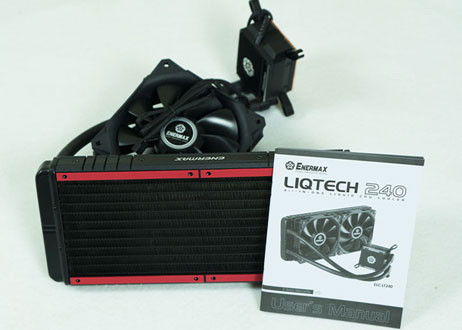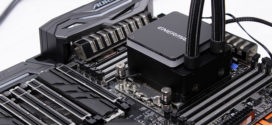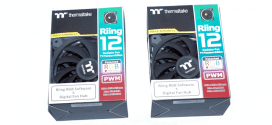Performance
Many of you might wonder how we test the performance characteristics of a liquid cooling system. We decided to use the Intel Extreme Tunning utility! Why? Because we have found that this application is able to most accurately stress the CPU and create a 100% load on the CPU. This will allow us to see what temperatures the CPU reaches at maximum load. Since a CPU does not typically operate at 100% load for an extended period of time, for this test we set the utility for 15 minutes and measured the max temps.
Our test system
| Case | Fractal Design Define R5 |
| CPU | Intel Core i7 6700K |
| Memory | Patriot Viper 4 16GB 2800Mhz kit |
| Motherboard | ASUS Maximus VIII GENE |
| Hard Drive | SanDisk Extreme Pro 240GB |
| Case Fans | 2 x Fractal Design GP14 |
| Liquid Cooling | Enermax Liqtech 240 |
| GPU | EVGA GTX970 FTW 4GB |
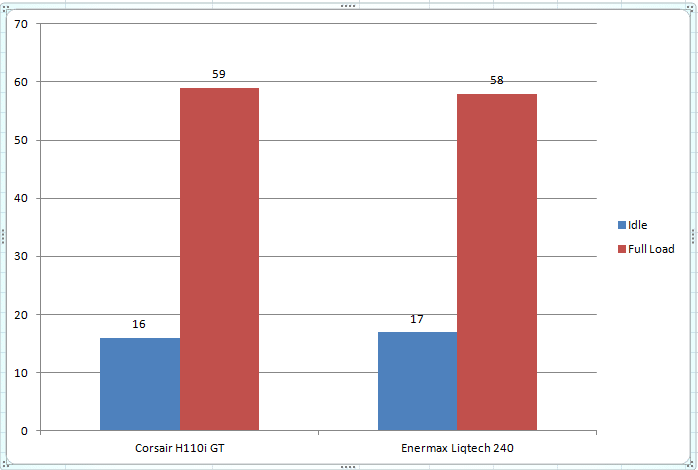
We start with a run at stock CPU speeds in order to establish a clear baseline for users who plan to keep their system at stock settings and don’t plan on overclocking the CPU. This also shows the wide range between idle temps and under a 100% load, as shown in our chart. At idle, the CPU temperature hovered around the 17 degrees Celsius mark. Under 100% load we notice that the temperature peaked at 58 degrees. It is also important to note that these are max temperatures and at 100% load they ranged between 54 and 58 degrees.

Next we overclocked the CPU to 4.4 Ghz and ran the same test for the same duration in order to keep our results consistent. During this test run we achieved a maximum CPU temperature of 63 degrees Celsius. However, during most of the test we watched it bounce around in the high 50s. These results were impressive, considering there was not a huge difference that we noticed between stock settings and OC.
Noise Levels
We measured the noise level of the Liqtech 240 during our several tests and found minor differences between stock CPU settings and overclocked settings. During our runs we measured an idle noise level of 24 dB and 35 dB, respectively. We also need to note that from a noise standpoint, some of this noise can be attributed to other system fans and even background noise. What we can say is that the noise level was not really noticeable during our testing.
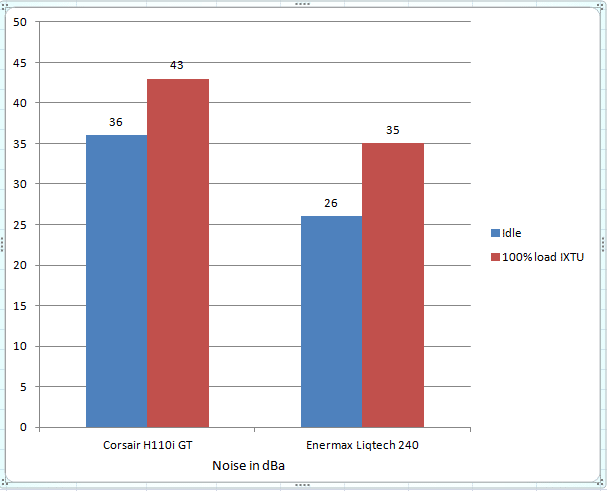
When we overclocked, we were not able to measure any difference in noise levels coming from the radiator cooling fans. This caused us to check, and sure enough the fans were working just fine.
 Bjorn3D.com Bjorn3d.com – Satisfying Your Daily Tech Cravings Since 1996
Bjorn3D.com Bjorn3d.com – Satisfying Your Daily Tech Cravings Since 1996
